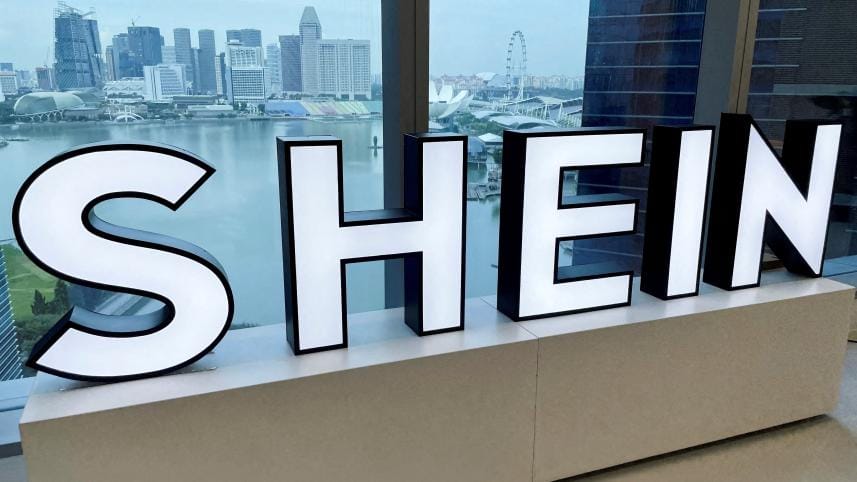We need to know more about Shein’s $9 jeans

Chinese fast fashion brand Shein has been the talk of the town, and understandably so. The company has made deep inroads into the global fast fashion market in a relatively short time. It is now the world's largest fast fashion retailer based on revenue volume, according to the Financial Times. Recently, I visited Shein's much talked-about website for the first time. And I have to say, I was taken aback by how low some of the prices of its products were.
We have all heard about the cheap dresses and blouses, but what about denim? As a denim producer, this was my area of interest. The cheapest pair of denim jeans I saw was priced at $9. Only $9 for a pair of denim jeans! If I spent $10 on a pair, they would throw in free delivery!
The website also boasts many offers, which gave me an idea about how young, impressionable shoppers could become addicted to shopping with Shein. Besides employing points system and rewards, Shein also uses flash sales and time-bound deals, accompanied by countdown timers, pressuring users to make swift decisions to avoid missing out on considerable savings. In addition, Shein employs strategies of instant gratification, similar to slot machines, through its "Lucky Draw" feature. This function allows users daily opportunities to win discounts, points or gifts.
I was left with two burning questions: first, is any of this even ethical? Second, how is Shein retailing clothing so cheaply? How is it retailing denim jeans at a price many manufacturers would struggle to sell them?
For the first question, I think that, at the very least, Shein's website does raise some ethical issues around the nature of consumerism, and whether we want to be so blatantly encouraging rampant consumerism as we face an ecological disaster.
But what about pricing? Well, Shein's denim jeans—to my knowledge—are produced in China, where minimum wages vary by region. For textile workers specifically, a quick Google search told me that the average gross salary is about $9,207 per year.
In Bangladesh, where my own factory produces jeans, the monthly minimum wage for garment workers was increased to Tk 12,500 (approximately $113) as of December 2023. To an international audience, this wage will seem low. In relative terms, it has proven a challenge for manufacturers, especially smaller ones, which lack the economies of scale of some of the major conglomerates.
This begs the question: how is a fast retailer that produces its denim jeans in China managing to undercut rival retailers that are sourcing from Bangladesh, Pakistan and other lower wage textile production hubs?
There are a few possible reasons one may put forward. The first is Shein's business model that relies heavily on data analytics and real-time monitoring of fashion trends. This approach enables the company to produce what is currently in demand quickly, minimising stock levels and reducing waste. Second, Shein employs a direct-to-consumer sales model, cutting out intermediaries and further reducing costs associated with brick-and-mortar stores. This strategy not only lowers operational expenses, but also streamlines the supply chain, enhancing efficiency.
Lastly, Shein's use of an agile supply chain model allows for small batch production, reducing the risk of overproduction and enabling the company to offer a wide variety of items at lower prices. These combined factors could contribute to Shein's ability to sell clothing at such low prices.
Having said all this, I am still amazed that a company can produce denim jeans in China and deliver them to somebody in Europe or the US for just $9. How much of this price is for transportation? How much is for raw materials? How much is for wages? How much is for packaging? And how much is for the various processes involved in textile production? Once one strips away these and other costs, it is difficult to see what, if any, margin is being made.
We know that fashion supply chains can be blind spots, but Shein's is more opaque than most. While major brands such as H&M, Asos and Gap have opened themselves to scrutiny by listing their suppliers on their websites in recent years, Shein has yet to take this step. We know very little about the company given its market dominance and popularity among a huge young audience.
Perhaps this needs to change. Shein is a market disruptor. Such companies come along from time to time and completely change the rules of the game. They turn existing assumptions about price points completely on their head, unsettling and confusing the old order in the process. There's no problem with that. But it's also reasonable to ask that Shein plays by the same rules as its competitors. We all want a level playing field, and when one business is being vague about its supply chain while its competitors are opening themselves to public scrutiny, we are entitled to ask why, and demand better. Especially when said company is selling denim jeans for $9.
Mostafiz Uddin is the managing director of Denim Expert Limited. He is also the founder and CEO of Bangladesh Denim Expo and Bangladesh Apparel Exchange (BAE).
Views expressed in this article are the author's own.
Follow The Daily Star Opinion on Facebook for the latest opinions, commentaries and analyses by experts and professionals. To contribute your article or letter to The Daily Star Opinion, see our guidelines for submission.




 For all latest news, follow The Daily Star's Google News channel.
For all latest news, follow The Daily Star's Google News channel. 


Comments